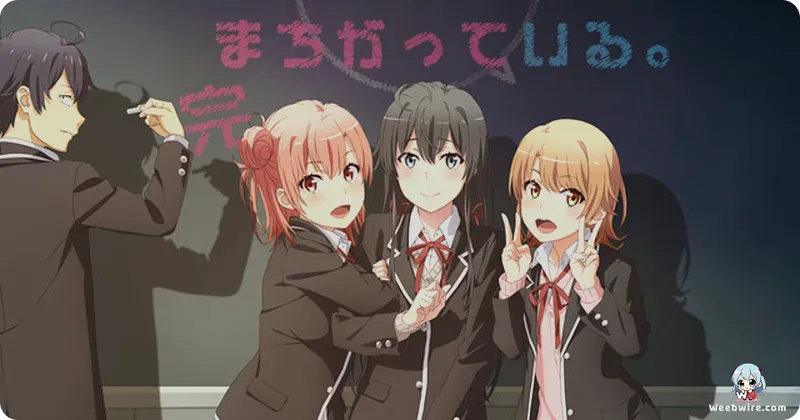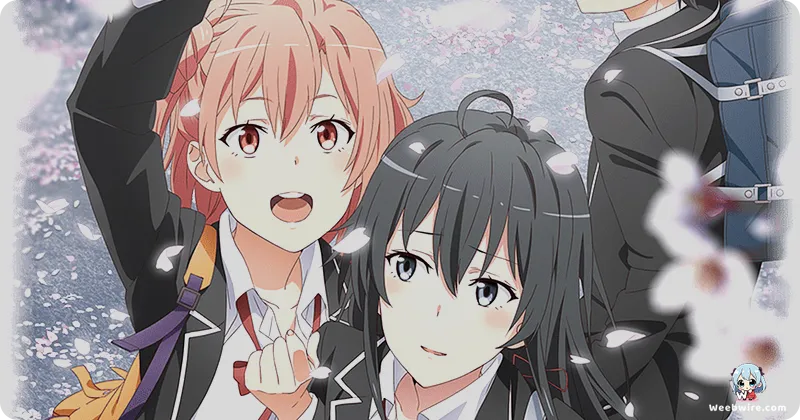Oregairu Kan: Unveiling the Production Secrets Behind a Concluding Masterpiece

The critically acclaimed romantic comedy, Yahari Ore no Seishun Love Come wa Machigatteiru., widely known as Oregairu, concluded its compelling narrative with Yahari Ore no Seishun Love Come wa Machigatteiku. Kan: Dakara, Shishunki wa Owarazu ni, Seishun wa Tsuzuiteiku. This final season not only provided a poignant resolution but also solidified the series' reputation for intellectual depth and emotional resonance, distinguishing it within the genre. Beyond its compelling plot, fascinating production insights and creative decisions illuminate the unique brilliance of Oregairu Kan.
Adapting Hachiman's Inner World
A significant challenge for Studio feel. was the intricate adaptation of protagonist Hachiman Hikigaya's dense internal monologues. Hachiman's cynical, philosophical, and often self-deprecating thoughts form the core of the series, offering a distinct perspective. In the light novels, these monologues spanned pages. The animation team masterfully translated these through a delicate balance of subtle facial expressions, precise body language, and strategic voice-over, immersing viewers in Hachiman's psyche without overwhelming them. This meticulous approach preserved the series' intellectual charm.
The Evolution of a Genuine Narrative
Intriguingly, author Wataru Watari initially conceived Oregairu with a more cynical and less conventional romantic trajectory. However, as he developed Hachiman, Yukino Yukinoshita, and Yui Yuigahama, the narrative evolved. The central theme shifted from deconstructing rom-com clichés to a profound exploration of 'genuine' relationships in a superficial world. This transformation is particularly evident in Kan, where characters' struggles to articulate true feelings culminate in a search for authenticity, elevating the series far beyond a simple love triangle.

The Power of Stellar Voice Acting
The stellar voice acting ensemble was indispensable. Takuya Eguchi's portrayal of Hachiman captured his deadpan wit and underlying vulnerability. Saori Hayami's nuanced performance as Yukino beautifully conveyed her strength and fragility, while Nao Tōyama's earnest depiction of Yui added immense depth. The palpable chemistry among the trio's voice actors elevated emotional interactions, making their personal growth feel remarkably authentic.
Subtle Visual Storytelling
Furthermore, Oregairu Kan excels in visual storytelling. Director Kei Oikawa and the feel. team frequently employed subtle visual cues and symbolism. Reflections, lighting changes, shifts in gaze, or seasonal imagery (like cherry blossoms or fireworks) conveyed unspoken emotions and narrative progression without relying solely on dialogue. This artistic choice not only enriched the viewing experience but also encouraged active interpretation of characters' deeper feelings, mirroring the series' overarching theme of seeking genuine understanding beneath the surface.
Credits
Yahari Ore no Seishun Love Come wa Machigatteiru. Kan: Dakara, Shishunki wa Owarazu ni, Seishun wa Tsuzuiteiku.
Author
Wataru Watari
Cover Art
Ponkan8
Studio
feel.
Publisher
Shogakukan
Producers





